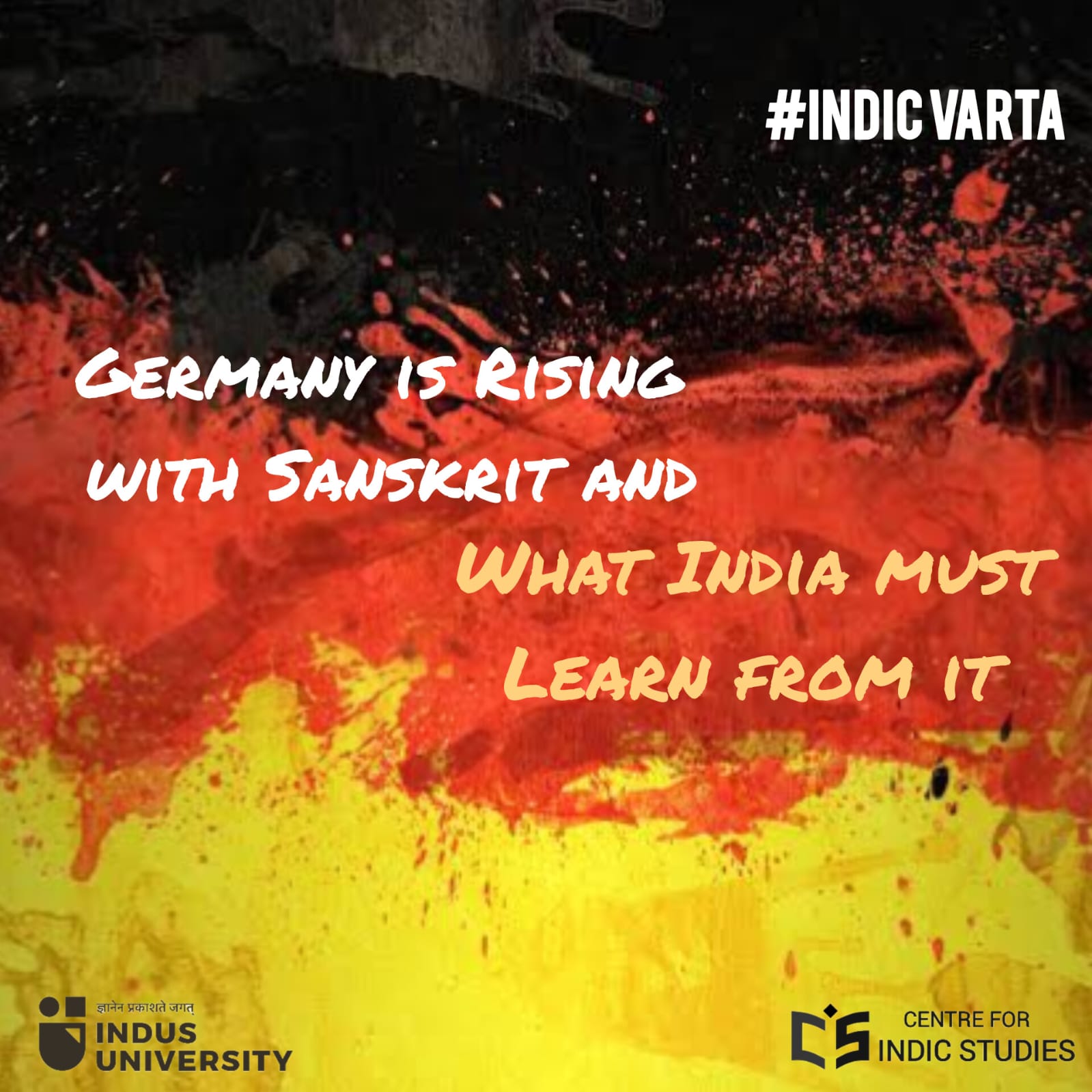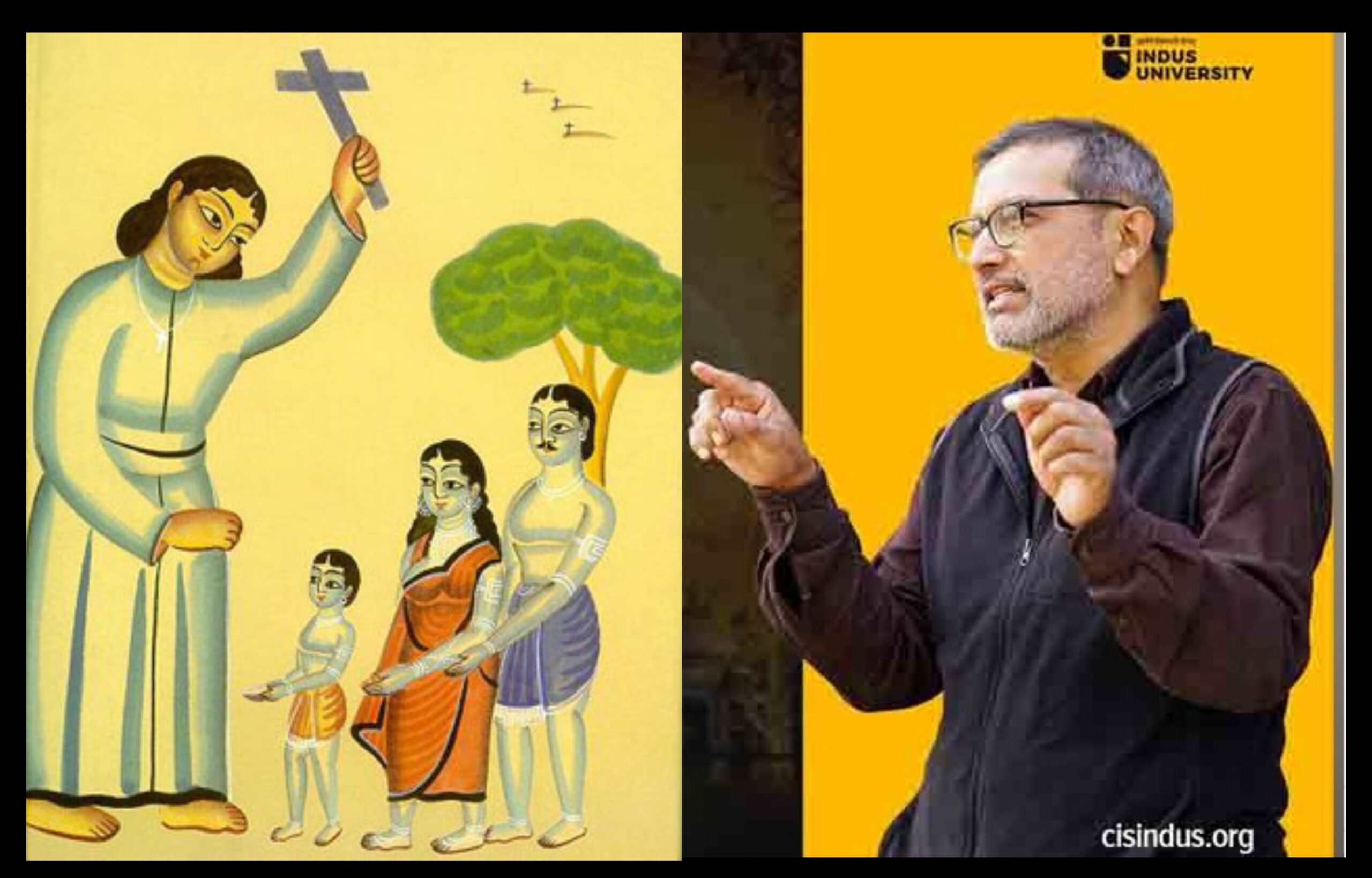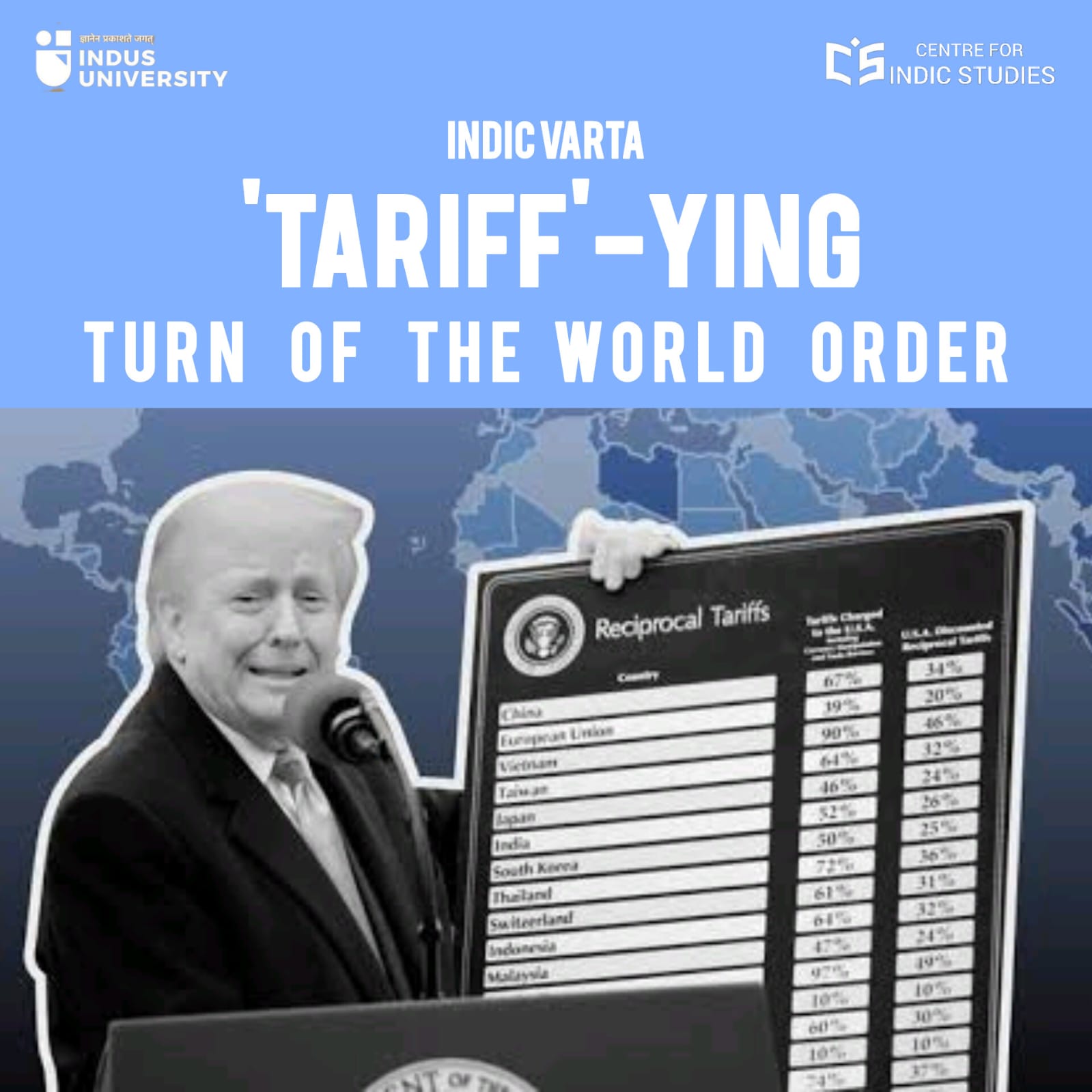- Visitor:162
- Published on: 2024-10-15 04:40 pm
Germany is Rising with Sanskrit: What India Must Learn for Its Own Civilizational Resurgence
Germany’s remarkable rise as a global centre for Sanskrit studies is an intriguing development, symbolising how the essence of a language born from ancient Vedic culture can be embraced by a Western nation, while its land of origin remains less proactive in nurturing its own cultural heritage. Germany’s profound respect for Sanskrit and its associated knowledge systems offers India a reflective lens through which it can evaluate its civilisational identity. The time has come for India to reconsider its relationship with Sanskrit, not merely as an academic pursuit but as a cornerstone of civilisational pride, through which India can offer the world intellectual, philosophical, and spiritual insights. To truly understand India’s rich past and harness its relevance in contemporary times, Sanskrit must be at the heart of this reawakening.

In recent decades, Germany’s growing engagement with Sanskrit has led to the establishment of several academic institutions dedicated to studying Indian philosophy, linguistics, and culture. Institutions like the South Asia Institute at Heidelberg University have not merely adopted Sanskrit as a linguistic curiosity but integrated it into a broader discourse involving sciences, humanities, and even advanced technological fields. However, this development has occurred not through any overt claim of superiority but via an intellectual recognition of Sanskrit’s universal significance. Germany’s engagement reveals an acknowledgment of the vast reservoirs of knowledge that Sanskrit encapsulates, showing how its study can serve as a gateway to understanding larger philosophical and civilisational frameworks.
The guiding wisdom of India’s ancient texts—whether the Upaniṣads, Vedas, or the Bhagavad Gītā—is embedded in Sanskrit. Consider, for instance, the verse from the Katha Upanishad: "uttiṣṭhata jāgrata prāpya varānnibodhata / kśurasya dhārā niśitā duratyayā durgaṃ pathastatkavayo vadanti" (Kaṭha Upaniṣad 1.3.14). Translated as, "Arise, awake, and stop not till the goal is reached," this verse encapsulates the philosophy of perpetual striving for knowledge, a message that resonates far beyond Indian borders.
The subsequent exhortation to pursue the highest wisdom acknowledges the challenges of the spiritual path, likening it to navigating a razor's edge—difficult yet navigable with diligence and the guidance of the wise. In this light, it is perhaps no coincidence that nations like Germany, whose intellectual tradition has long prized disciplined inquiry, have adopted this philosophy, while India has yet to fully awaken to the responsibility of preserving its own spiritual and intellectual treasures. As the world increasingly turns to ancient wisdom in navigating modern complexities, the imperative for India to reclaim and disseminate its profound insights becomes ever more urgent.
It is argued that, while countries like Germany strive to imbibe the civilisational knowledge embedded in Sanskrit, India must realise the necessity of cultivating this language, not only for its historical significance but also for its potential to address modern challenges in philosophy, science, and ethics. In Germany’s quiet yet persistent focus on Sanskrit, there is a subtle challenge to India’s intellectual community: to reclaim what is inherently theirs, yet appears to have been neglected.
Sanskrit and India's Civilisational Identity
Indian civilisation’s essence has always been communicated through the medium of Sanskrit. Whether it be the ethical teachings of the Mahabharata, the spiritual reflections of the Bhagavad Gita, or the profound philosophical musings of the Upanishads, Sanskrit has served as the conduit for these timeless ideas. Through Sanskrit, concepts like Dharma (ethical duty) and Rta (cosmic order) were articulated, which not only shaped the Indian psyche but possessed universal relevance in promoting societal harmony.
A well-known verse from the Bhagavad Gita further illustrates this deep connection between Sanskrit and India’s civilisational ethos: sarva-dharmān parityajya mām ekaṁ śaraṇaṁ vraja" (Bhagavad Gītā 18.66). This verse, which translates to "Abandon all varieties of duty and just surrender unto Me", signifies not a call to fatalism but recognition of a deeper surrender to universal ethical and spiritual principles. Germany’s ongoing engagement with Sanskrit suggests an intellectual curiosity and willingness to explore these universal tenets. India, on the other hand, must acknowledge that its civilisational identity remains incomplete without a revival of Sanskrit. This language historically conveyed the principles of justice, duty, and morality that define the Indian way of life.
However, rejuvenating Sanskrit within India is not merely a question of linguistic revival. It requires the reawakening of civilisational pride, with Sanskrit positioned as the key to understanding Indian philosophy, science, and ethical governance. Germany’s careful and methodical approach to Sanskrit serves as a model of how an ancient language can be seamlessly integrated into a nation’s intellectual and cultural life. For India, however, the goal must be far grander. Sanskrit is not merely an academic pursuit; it is a civilisational imperative with the potential to guide India’s quest to reassert its place as a global leader in wisdom and knowledge.
Educational Reform: Reclaiming Civilisational Pride
Germany’s integration of Sanskrit into its academic framework reflects a larger vision: understanding that ancient knowledge systems can enrich modern educational paradigms. German scholars are not merely engaging with Sanskrit as an exotic language but using its vast repository of knowledge to inform contemporary disciplines. Their actions speak to an understanding of Sanskrit as a tool for broadening intellectual horizons, be it in computational linguistics, AI, or comparative philosophy.
India’s New Education Policy (2020) acknowledges the importance of the Indian Knowledge System (IKS), with Sanskrit playing a key role. But one must ask whether this acknowledgment is enough. Is Sanskrit being positioned at the core of India’s educational reform, or is it being relegated to a supplementary role? In India’s educational structure, Sanskrit should not merely be an elective but a vital part of the curriculum from early stages of schooling. This aligns with the wisdom of the ancient Indian verse from the Chāndogya Upaniṣad (6.8.7): "tad evaśānta upāsīta".
This translates to "That alone, which is the serene, should one meditate upon." It advocates for focused learning and reflection—values that Sanskrit inherently fosters. Through Sanskrit, students could engage not only with their civilisational heritage but also with deeper knowledge systems that transcend modern academic disciplines. By placing Sanskrit at the centre of both ancient and modern knowledge systems, India can ensure that its students are not only global citizens but informed heirs to a rich civilisational legacy.
Scientific Exploration Rooted in Sanskrit Knowledge Systems
The integration of Sanskrit into modern scientific fields has not been limited to India. In Germany, the study of ancient Indian scientific treatises written in Sanskrit has opened new avenues for academic exploration. These texts, spanning astronomy to medicine, are not treated as mere historical records but as repositories of knowledge with ongoing relevance to contemporary science.
Ancient Indian scholars such as Āryabhaṭa, whose Āryabhaṭīyaṃ—written in Sanskrit—provided groundbreaking insights in mathematics and astronomy, should not be overlooked. It was in these Sanskrit texts that principles such as zero, the decimal system, and advanced trigonometry were first articulated. Āryabhaṭa’s equation for calculating the Earth’s circumference, for instance, is astonishingly close to modern measurements. The verse from Aryabhatiya reads: "sthānāt sthānāt vyavakramya kramena gatihī gamyaṭaḥ prāptah saṅgatiḥ sthānāt sthānāntaraṅgataḥ kramenayuktam" (Āryabhaṭīyaṃ 1.7). This can be interpreted as a mathematical principle describing the motion of planets relative to Earth. Such scientific thought, encapsulated in Sanskrit, has laid the foundation for human advancement in areas like astronomy, mathematics, and linguistics. Germany’s appreciation of these texts demonstrates how Sanskrit’s relevance extends beyond spiritual discourse to encompass science and technology.
For India, the message is clear: Sanskrit is not merely a language of the past; it is key to future innovations. By integrating Sanskrit-based knowledge systems into modern scientific research, India has the opportunity to reaffirm its role as a leader in global intellectual advancement.
Vasudhaiva Kutumbakam: India’s Message to the World
The philosophy enshrined in Sanskrit texts, particularly the concept of Vasudhaiva Kutumbakam (the world is one family), offers a universal message that transcends cultural boundaries. Germany’s engagement with Sanskrit reflects an understanding of this philosophy, as they study Sanskrit not for nationalistic gain but to advance global knowledge.
The concept of "one world, one family" is beautifully expressed: "ayam bandhurayam nītiḥ; gaṇanā laghuchetasām / dāracharitānām tu vasudhaiva kutumbakam" (Mahopaniṣad 6.71). This verse distinguishes between narrow-minded individuals who make distinctions and those with a broad understanding who view the whole world as one family. Germany’s adoption of Sanskrit implicitly acknowledges this universal value. India, as the birthplace of this principle, must lead the way in promoting "vasudhaiva kutumbakam" through the revival of Sanskrit, offering not only a language but a philosophy of interconnectedness and global harmony.
India’s Civilisational Duty: Reclaiming Sanskrit’s Legacy
Germany’s rising engagement with Sanskrit serves as both an inspiration and a challenge for India. While Germany has quietly fostered an intellectual renaissance through its study of Sanskrit, India must take the lead in reclaiming its cultural and civilisational legacy. Through education, scientific exploration, and global engagement, India can harness the wisdom of Sanskrit to guide its future.
India’s civilisational resurgence is intrinsically tied to the revival of Sanskrit—not just as a linguistic exercise but as a profound reawakening of the principles that have shaped its society for millennia. By embracing Sanskrit, India can once again position itself as a global leader in intellectual, philosophical, and ethical discourse.
In Germany’s respect for Sanskrit lies a call to India: to rise, awaken, and fulfil its own civilisational duty. As the custodians of this ancient knowledge, India must not let it fade into obscurity but instead nurture it, ensuring that its timeless wisdom continues to illuminate the path for future generations.
- 81 min read
- 2
- 2










